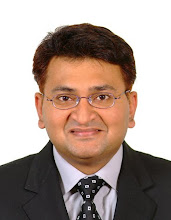I would not comment on the person who is against the motion in the debate, except that if I say that she is stupid than I would be making same kind of arguments that she has made in the debate.
However, I like the arguments made by the person in favor of the motion. His main argument is that it was not Greed but Government's (and Fed's) intervention that got us into this mess.
Before I describe my position, I want to mention that I have always admired Ayn rand. I find her writing and her interviews extremely clear and compelling. However, after my economics education, I have begun to slightly modify my views on capitalism and human nature. Below are my thoughts:
My position:
- Capitalism is the best economic system known to mankind
- However, only if there is an ideal starting point for the economy
- This ideal starting point is that individual wealth has been 'rationally' earned
Why capitalism is not working today?
We have never been anywhere close to the ideal starting point.
Firstly, individual wealth have never been 'rationally' distributed. Secondly, individual incomes have seldom been 'rationally' earned.
If today the world moves to laissez-faire capitalism, I still will have an edge over lot of others. This edge will not be due to my own innate merit. Instead, it would stem from my parents' wealth - due to which I could go to the best educational institutes.
Hence, unless there is a 'fair' starting point for all, capitalism will not work its best.
Why socialism or govt. intervention is not the right answer to today's problems?
- Because it creates 'unfair' starting points for a few individuals
- Because it removes 'rationality' from future income generation and distribution.
What can be done now to make capitalism work?
The only fix is to fix the starting points. Otherwise, we will continue to live in an imperfect economic world.
It is not at all easy to fix the starting points. However, below are my 2 cents:
- Abolish private property on natural resources (e.g. land, oil, etc)
- Enforce property rights on man made resources (e.g. Intellectual Property)
- Devise a redistribution mechanism so as to fix the errors of the past
All of the above is easier said than done! But one needs to say it first - right?
P.S. Since I have used the word 'rational' so many times above, it is important that I state what I mean by it. Instead of defining it, I would try and triangulate it below:
Conditions for a rational system:
- One can only keep the wealth that is earned by him, and by his own effort.
- One can only keep the income that is earned by him, and by his own effort.
- Universal sustainability: If the rules (or norms) of the game are followed by all, the system should be sustainable.
- Efficiency: The system should lead to the most optimal use of scarce resources

No comments:
Post a Comment